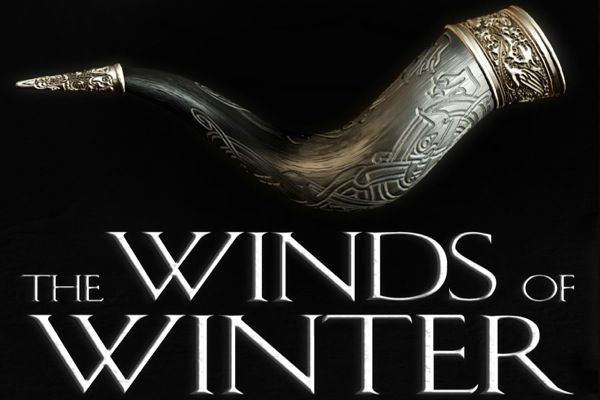Winds of Winter isn’t coming out before the next season of Game of Thrones. A Dream of Spring, the seventh and supposedly last book in the series, won’t be out for many years yet, and George R. R. Martin has definitely been slowing down. However, as Neil Gaiman famously said, George R. R. Martin is not your bitch, and can do what he wants. Well, what if he does? What if, for whatever reason, he doesn’t finish? Look to Isaac Asimov’s Foundation series for answers. It never really ended. And you know what? It's not that bad.
Foundation and the Thrones
Isaac Asimov’s Foundation series began when the not-yet-famous writer was a young man, much younger than GRRM. The first three books in the series came out in novel form in 1951, 1952 and 1953. Then, Asimov took a break for almost 30 years, and finally in 1982 he wrote a sequel, Foundation’s Edge. Then a few years later, Asimov wrote two more sequels and two prequels. He always intended to continue the mainline of the series, which in the end only covered the first 500 or so years of the interregnum between the first and second Galactic Empires. He died with the series unfinished, and wasn’t actively working on it at the time.
George R. R. Martin is in fine health, and I won’t talk about him dying—that’s disrespectful. But he’s definitely writing more slowly. He could quit tomorrow, if he wanted—that’s his right. Or we could just end up waiting another seven or eight years for A Dream of Spring. And the truth is, it would suck, but it wouldn’t be the end of the world.
The Foundation trilogy, and to some extent its later sequels, are (ahem) foundational works of science fiction—wildly influential decades after they were written. They are still read very widely, even though the story isn’t “complete.” It is, in a sense, only half-told. But the whole series, such as it is, is still immensely satisfying on its own… and it admittedly comes to a conclusion of sorts.
You might protest that Game of Thrones isn’t like that—that it’s a single narrative, and not separate, connected ones like the Foundation trilogy. Truth is, Foundation is a full narrative as well. The series sets out to tell the tale of the Seldon Plan and the rise of the Second Galactic Empire. This task is left only half-done. But it succeeds utterly nonetheless, and also includes several complete narrative arcs—the rise of the First Foundation, the rise of the Mule, the Second Foundation’s response, and then the first hints of a greater future down the road. Likewise, if Winds of Winter somehow never came out, we would still have an immensely satisfying series on our hands. The full chronicle of the War of the Five Kings! The events that led up to it! The horrific aftermath! The rise of a tyrant in Slaver’s Bay! The story would not have fulfilled its narrative promise, but we’d still love it all the same… even if we never found out Jon Snow’s secrets (or at least the book version of them).
Obviously, it’s better if that doesn’t happen and we do get Winds of Winter and A Dream of Spring in good time. But if we don’t, it’s not the end of the world, and it doesn’t invalidate the series’ achievements… or how enjoyable it is.

![Best Gaming Mouse For Gamers With Smaller Hands [2025]](https://d.player.one/en/full/227430/best-gaming-mouse-gamers-smaller-hands-2025.png?w=380&h=275&f=fdcf47c1c5fc58d1e41d3be505c12568)















